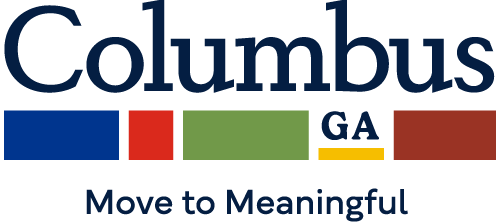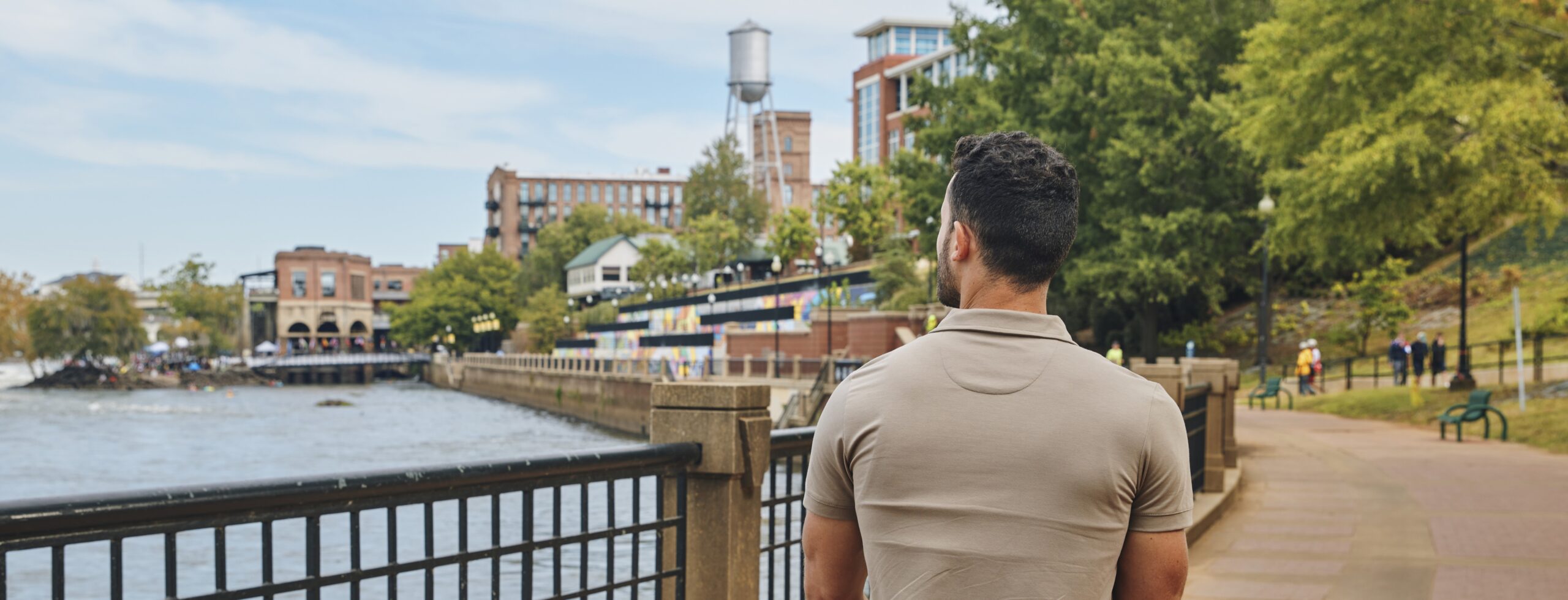What is the population of Columbus, Georgia?

If you’re interested in moving to Columbus, Georgia, you’ve probably wondered about how many people live there and who those people are. Knowing about an area’s population makeup and demographics can help you understand what it would be like to live there.
Columbus is the second-biggest city in Georgia after Atlanta but with a much lower cost of living comparatively, which puts it in a unique position. You’ll find that living in Columbus overall is similar to living in Atlanta, but you’ll spend much less on rent, food, gas, and other necessities.
So who lives in Columbus today? Our city is home to a diverse range of people. Let’s explore the people that make Columbus a great place to live!
Note: The statistics outlined in this article have been pulled from the most recent data available. All data is from 2020 or after.
What’s the population in Columbus, Georgia?
Columbus is a mid-sized city, larger than Augusta but with a similar demographic makeup. Its residents enjoy the bustling vibrancy of larger cities, without the heavy traffic found in these urban centers.
- Overall Population: 204,000
- Median Age: 34.6
- Population Growth between 2010 and 2020: 9%
People are moving to Columbus for all sorts of reasons, including for school, work, to start a family, or for retirement. On average, Columbus residents are young professionals around 35 years old. However, the median age is decreasing as more families are starting to settle in the area.
6 things to know about Columbus’ demographics
As we explore the demographic profile of Columbus, it’s crucial to get a complete picture of the residents who shape its lively culture. This city, home to a whopping 204,000 people, is a melting pot of diverse ethnicities, economic backgrounds, and education levels.
Here are six key demographic insights that will show you what it’s like to live in Columbus both today and in the future, as the city continues to grow and welcome new residents.
1. A diverse population enjoys what Columbus has to offer
A little more than half of Columbus residents were born in Georgia, meaning that the other half come from other places in the United States—and even other countries. You’ll find that Columbus is home to a very diverse population, which allows you to learn about other cultures and people with ease.
- Sex Ratio: 51.18% female to 48.82% male
- Race Statistics:
- Black or African American: 46.35%
- White: 41.7%
- Two or More Races: 5.97%
- Other Races: 3.07%
- Asian: 2.63%
- Native Hawaiian or Pacific Islander: 0.14%
- Native American: 0.14%
- International-Born Population: 5.3%
Regardless of your ethnic or racial background, you’ll likely find someone who shares your experiences in Columbus. You’ll also be able to explore other cultures and backgrounds; from trying new foods, new experiences, or even talking to new people, you won’t find a lack of interesting culture in Columbus, Georgia.
2. Professionals of all types flock to Columbus for work
Columbus is a thriving, bustling city with many work opportunities. The majority of Columbus residents are of working age, so if you are too, you’ll find that you have a lot in common with the current residents. Columbus employed over 80,000 people in 2021, which is a growth of 5.16% from the previous year.
- Income Statistics:
- Average Annual Household Income: $70,012
- Median Annual Household Income: $50,542
- Top Five Employers:
- Fort Moore (formerly Fort Benning)
- Muscogee County School District
- Synovus
- Aflac
- Piedmont Columbus Regional Healthcare System
- Top Five Occupations:
- Office and Administrative Occupations
- Sales and Related Occupations
- Management Occupations
- Education, Instruction, and Library Occupations
- Food Preparation and Serving Related Occupations
- Top Five Employment Industries:
- Healthcare and Social Assistance
- Retail Trade
- Manufacturing
- Accommodation and Food Services
- Educational Services
Columbus’ residents work in diverse industries—our city’s top employers include the Muscogee County School District, Fort Moore, and two Fortune 1000 companies: Aflac and TSYS. Fort Moore, specifically, is a major US Army post and Georgia’s third-largest employer. The base supports over 120,000 people, including active-duty military, families, reservists, retirees, and civilians.
3. Columbus is home to many families with children
If you’re searching for a place to settle down and raise a family, look no further than Columbus! Many of Columbus’ households are families—in fact, children under the age of 18 make up the second highest population in terms of age, just after people ages 25-44.
- Households with Children Under 18: 34.6%
- Households with Married Couples: 44.7%
- Marital Status:
- Married: 39%
- Never Married/Single: 38%
- Divorced: 13.5%
- Widowed: 6.4%
- Separated: 3.2%
- Average Number of Residents per Household: 3
Most households have at least 3 people, and it’s highly likely that you’ll find similar families to yours who are currently living in Columbus. It’s an added bonus that there are a ton of things for families to do in Columbus, including exploring our parks or hiking trails or kayaking. Ultimately, Columbus, Georgia is a great, diverse area to raise a family.
4. Education is a priority for residents of Columbus
In addition to great public schools, Columbus is also home to Columbus State University, a public university. Ranked among the top regional universities in the South by U.S. News & World Report, students can choose from over 90 undergraduate, graduate, and doctoral programs. The city also has several private colleges and trade schools.
Most adults living in Columbus graduated high school, and most also have at least some college-level education on top of that. If you’re hoping to start or continue your college degree, Columbus is a great place to learn!
- Education Statistics:
- High School: 26.35%
- Some College: 34.39%
- Associate’s Degree: 9.24%
- Bachelor’s Degree: 16.95%
- Graduate Degree (Masters or Higher): 11.19%
There is a very good distribution of education levels in Columbus. Plus, there are always new graduates finishing their degrees—Columbus Technical College and Columbus State University award nearly 4,000 degrees annually. Regardless of your educational background, you’ll find your place in Columbus.
5. There’s a thriving military population in Columbus
The Columbus metro area boasts a significantly higher concentration of military personnel and veterans than the national average, making it a distinct community within Georgia. Active-duty military members and their dependents make up nearly 15% of Columbus’ population, primarily stationed at Fort Moore (formerly Ft. Benning)—one of the largest Army bases in the United States.
- Military community: 14.6% (46,785)
- Major military installation: Fort Moore
- Predominant service branch: Army
- Veteran population: 9.5% (30,510)
Furthermore, the Columbus metro area is home to a substantial veteran population. Nearly one in ten are former service members, according to recent data from the US Census Bureau. This rich military heritage adds to the unique character and resilience of the Columbus community.
Considering a move to Columbus, Georgia?
Whether you’re looking for a more affordable cost of living or an amazing place to raise a family, Columbus could be the perfect place to call home. With a thriving job market, plenty of recreational activities, a strong sense of community, and short commutes, Columbus makes it easy to fit in more of what makes life meaningful.
Connect with us
If you’re ready to learn more about living in Columbus, feel free to contact us here. Our team is here to help!










